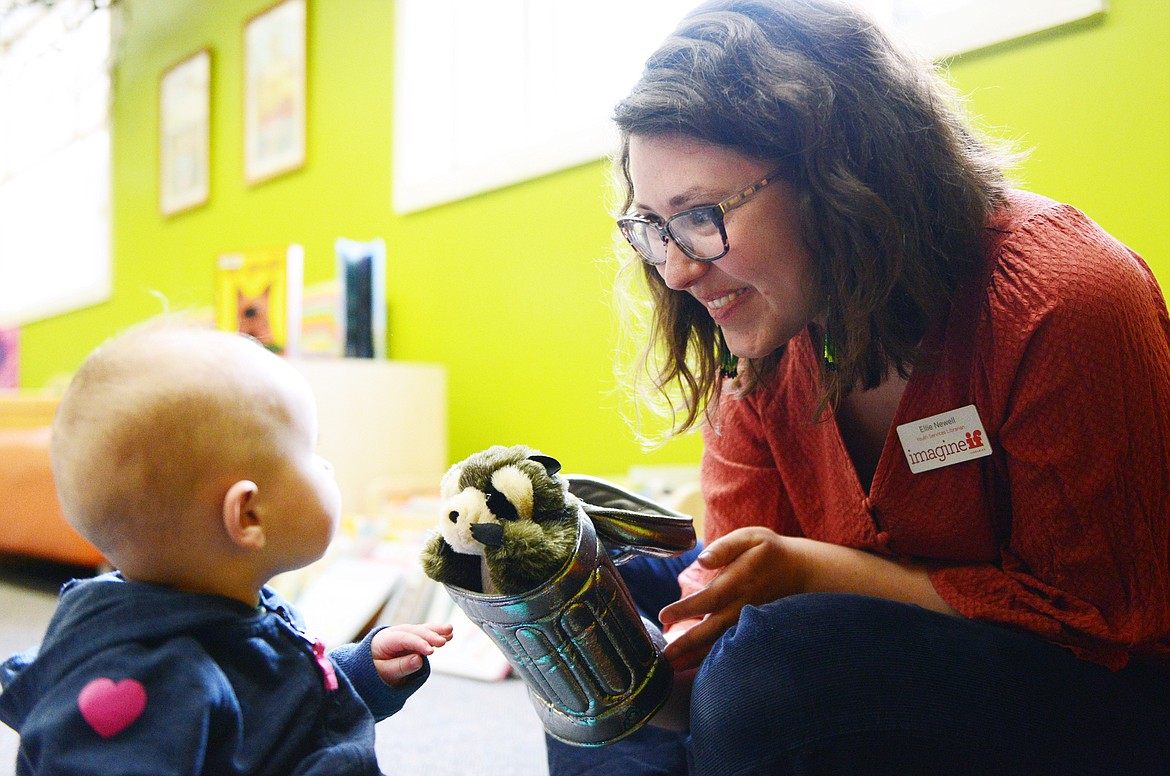Library board considers polling voters on funding
The board of Flathead County's ImagineIF Libraries is mulling next steps to secure more funding and maintain library services.
During its monthly meeting last Wednesday, which was held remotely via Zoom, the board spent nearly an hour discussing potential solutions, including a proposal to put a property tax increase on voter ballots within the next couple of years.
ImagineIF Director Connie Behe recommended the board hire a polling firm to gauge voters' interest in paying more to support the county library system.
Library leaders won't just need to persuade the public. They'll also need approval from the Flathead County commissioners, who control the bulk of the libraries' funding.
"We're told a lot to live within our means. I know we have a conservative commission," Behe told the library board. "I think that they've done a great job being frugal and are in a good position when many places aren't, coming out of the pandemic."
But doing nothing, Behe said, would force the libraries in Kalispell, Bigfork and Columbia Falls to continue working with a stagnant budget.
"The cons are that we can't provide adequate services, and we won't be able to fulfill our mission, and we would need to cut programming and services," she said. "We would have less digital, less browsing titles, and one less children's program a week in Kalispell. We would need to cut our program in Kalispell in order to have a program and resources for the Bigfork facility."
Board members also raised concerns that the main library building in Kalispell — an old post office the county leases from Kalispell Public Schools practically for free — could be sold in the near future, leaving no other affordable options.
Some members even floated the idea of forming a library district that would collect taxes and operate independently of the county government, just like a school district.
THE LIBRARIES' annual budget has hovered between $1.7 million and $1.8 million the past three years, with around 87% coming from local property taxes. The rest comes from donations and small allocations from the state.
While the commissioners decide how much tax money the libraries get each year, they don't scrutinize individual budget items as they do with most county departments. That's left to the autonomous library board, members of which are appointed by the commissioners.
Two members of the library board have formed an "exploratory committee" to examine the idea of a new mill levy, or property tax increase.
Flathead County homeowners currently pay $16.90 for every $200,000 of assessed property value for library services, which include physical and digital book checkouts, audiobook subscriptions, device checkouts and a wide range of programs for children, teens and adults.
The exploratory committee has suggested taxing an additional $2.89 per $200,000 of property value, bringing the total to $19.79. Behe has said that would be closer to average compared to other public libraries in Montana.
The committee reported the additional tax revenue would total about $264,000 annually, enabling the libraries to hire an assistant director, host more early-childhood programs and make the Bigfork location more accessible for people with disabilities.
No one was hired to replace the last assistant director after the commissioners cut library funding several years ago, resulting in an $80,000 budget shortfall. Those duties fell on Behe and senior librarians.
ON WEDNESDAY, library board member Doug Adams suggested the board hold a joint meeting with all three county commissioners — Republicans Pam Holmquist, Brad Abell and Randy Brodehl — to discuss long-term financial sustainability.
Board members acknowledged any new property tax revenue still would need to be allocated to the libraries from the county's general fund each year.
"We don't have any guarantee here that the commissioners will continue to give us the same amount of money, so that the mill levy would actually increase our budget," board member Al Logan said.
Behe emphasized the need for reliable data and said a public opinion poll would be useful no matter what fiscal approach the board chooses to take.
"I think that the polling could help inform decision-makers and policymakers around these other options as well," she said.
Board chairwoman Connie Leistiko suggested the board vote on the polling matter at its next meeting in April.
Reporter Chad Sokol can be reached at 758-4439 or csokol@dailyinterlake.com


